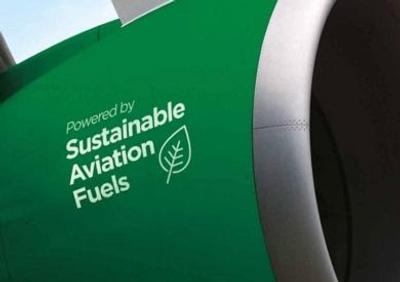Tue, Aug 09, 2022
Lawmakers Look for Birds
In yet another instance that speaks to widening gulf between the aims of America’s citizens and businesses and the federal lawmakers by whom they’re governed, U.S. fuel retailers are fighting the inclusion of a tax credit for sustainable aviation fuel (SAF) in Democrats' massive $430-billion spending bill.

The volumes of empirical data substantiating the fuel retailers assertions that SAF is more carbon intensive and less efficient than renewable diesel have had no effect on Capitol Hill Democrats—the vast majority of whom have consistently demonstrated a worrying indifference to data not supportive of their socio-political agenda.
Lawmakers are offering a $1.25-$1.75 per-gallon SAF credit depending on the feedstock used, as part of a tax and climate bill that aims to lower U.S. carbon emissions by about 40% by 2030 and cut the federal budget deficit by $300 billion.
The bill passed the Senate and moves to the House with the SAF credit included next week. Democrats control the House and approval with the credit is expected.
Fuel retailers fear the credit will shift vegetable oil and other renewable feedstocks to aviation, leaving less of it for fuel producers that make renewable diesel.
A 2021 study from LMC International, an agricultural marketing consultancy, found that SAF production is less efficient at reducing carbon emissions than renewable diesel as more feedstock is required per-gallon of output. What’s more the production of a single gallon of SAF requires 1,300-gallons of fresh water. That’s not a misprint. It takes thirteen-HUNDRED gallons of fresh water to produce one-gallon of sustainable aviation fuel.

Numerous environmental advocates have argued that biofuels that divert lipid-based feedstocks—such as animal fats and waste cooking oils—from existing markets present significant sustainability concerns. In an August 2022 briefing, researchers at the International Council on Clean Transportation stated: “Increasing the global supply of vegetable oils, directly or indirectly, necessarily comes at the cost of forests and other natural lands.”
D.C. Democrats aren’t listening, however, as the Biden White House has vowed to lower aviation emissions by 20% by 2030, with a corresponding goal of boosting SAF production to 3-billion gallons per-year by 2030—and to meet 100% of aviation fuel demand of about 35-billion gallons a year by 2050. One only hopes the stuff is drinkable…
More News
Airport Marking Aids Markings used on runway and taxiway surfaces to identify a specific runway, a runway threshold, a centerline, a hold line, etc. A runway should be marked in ac>[...]
"It is extremely difficult, if not impossible, for manned aircraft to see a drone while conducting crop-enhancing and other aerial applications at low altitudes and high speeds. We>[...]
Aero Linx: The Skyhawk Association The Skyhawk Association is a non-profit organization founded by former Skyhawk Pilots which is open to anyone with an affinity for the A-4 Skyhaw>[...]
“The T-54A benefits from an active Beechcraft King Air assembly line in Wichita, Kansas, where all required METS avionics and interior modifications are installed on the line>[...]
Aero Linx: Aerostar Owners Association The Association offers the Aerostar Owner a unique opportunity to tap an invaluable source of information concerning the care and feeding of >[...]
 ANN's Daily Aero-Term (04.28.24): Airport Marking Aids
ANN's Daily Aero-Term (04.28.24): Airport Marking Aids Aero-News: Quote of the Day (04.28.24)
Aero-News: Quote of the Day (04.28.24) ANN's Daily Aero-Linx (04.28.24)
ANN's Daily Aero-Linx (04.28.24) Aero-News: Quote of the Day (04.29.24)
Aero-News: Quote of the Day (04.29.24) ANN's Daily Aero-Linx (04.29.24)
ANN's Daily Aero-Linx (04.29.24)




